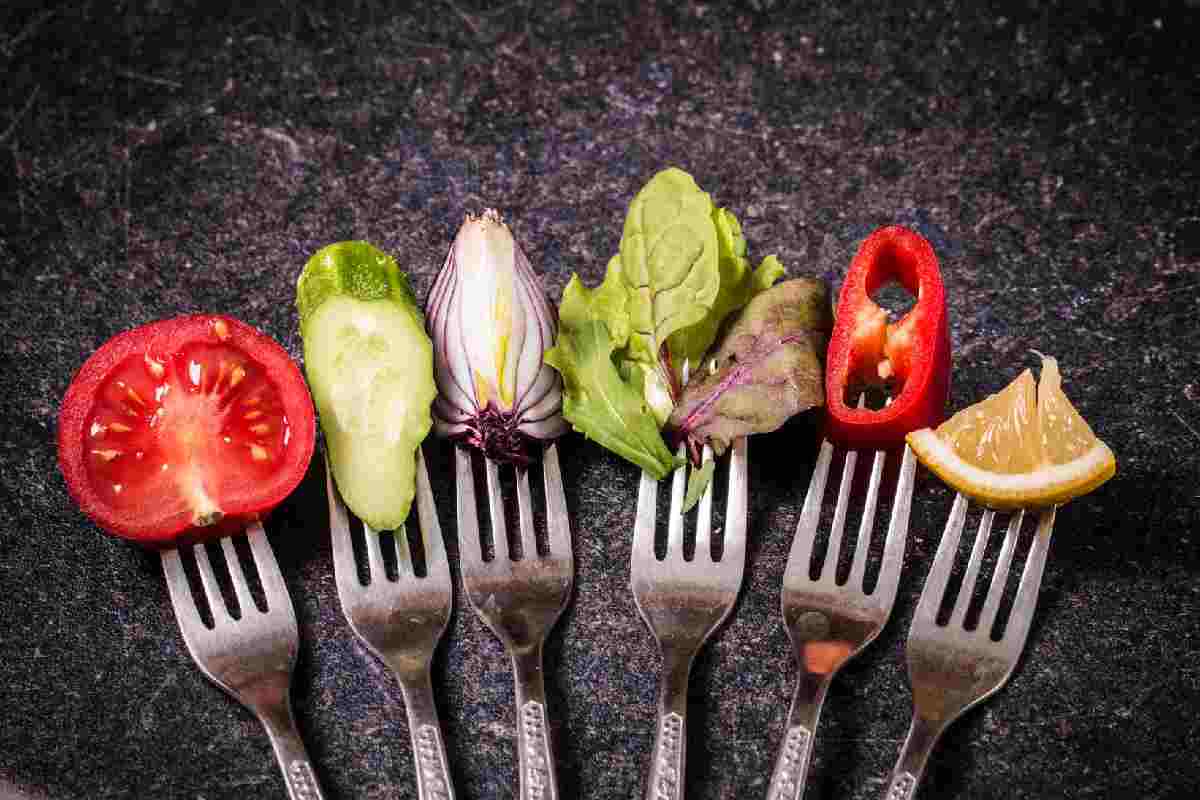Table of Contents
What Is a Vegan and Vegetarian Diet (Really)?
Let’s clear the basics first.
A vegan and vegetarian diet focuses on plant-based foods, but there are key differences:
Vegetarian Diet
Vegetarians avoid meat but may include:
Dairy products
Eggs
Honey (sometimes)
Common types:
Lacto-vegetarian (dairy allowed)
Ovo-vegetarian (eggs allowed)
Lacto-ovo vegetarian (both dairy and eggs)
Vegan Diet
A vegan diet avoids all animal products:
No meat, fish, or poultry
No dairy or eggs
No honey or animal-derived ingredients
Both versions center on fruits, vegetables, whole grains, legumes, nuts, and seeds—the real heroes of a vegan and vegetarian diet.
Why So Many People Are Choosing a Vegan and Vegetarian Diet
People don’t switch overnight without a reason. Here’s what I see most often.
1. Health Concerns
Many people turn to a vegan and vegetarian diet to:
Improve heart health
Manage weight naturally
Lower cholesterol
Support digestion
Plant-based diets are rich in fiber, antioxidants, and essential nutrients, which support overall wellness.
2. Ethical Reasons
Some folks feel strongly about animal welfare. A vegan and vegetarian diet aligns better with those values.
3. Environmental Impact
Plant-based eating generally uses fewer natural resources, making it a more eco-conscious choice.
Is a Vegan and Vegetarian Diet Actually Healthy?
Short answer? Yes—when done right.
Long answer? Balance matters.
A well-planned vegan and vegetarian diet can provide:
Complete protein
Healthy fats
Essential vitamins and minerals
But like any diet, it works best when you avoid extremes and focus on whole foods.
Common Worries About a Vegan and Vegetarian Diet (And Real Answers)
Let’s tackle the big questions people stress about.
“Where do I get protein?”
This is the most common one—and honestly, protein is easier than people think.
Plant-based protein sources include:
Lentils and chickpeas
Beans (black, kidney, pinto)
Tofu and tempeh
Quinoa
Nuts and seeds
Soy milk and plant-based yogurt
You don’t need protein shakes for every meal. Variety does the job.
“Will I be low on vitamins?”
Certain nutrients deserve attention in a vegan and vegetarian diet:
Key nutrients to watch:
Vitamin B12 (especially important for vegans)
Iron
Calcium
Omega-3 fatty acids
Vitamin D
These can come from:
Fortified foods
Smart food pairings
Supplements if needed
That’s not a flaw—it’s just being informed.
Vegan and Vegetarian Diet Benefits You’ll Actually Notice
Here’s what many people experience after switching.
Better Digestion
High-fiber plant foods support gut health and regular digestion.
Steady Energy Levels
Less heavy, processed food often means fewer energy crashes.
Weight Management
A vegan and vegetarian diet naturally emphasizes lower-calorie, nutrient-dense foods.
Improved Heart Health
Plant-based eating is linked to healthier cholesterol and blood pressure levels.
What a Balanced Vegan and Vegetarian Diet Looks Like
Balance is everything. Here’s a simple framework I follow.
Your Daily Plate Should Include:
Vegetables (half your plate if possible)
Whole grains (brown rice, oats, quinoa)
Protein sources (beans, lentils, tofu)
Healthy fats (avocado, nuts, seeds)
No perfection required—just consistency.
Simple Vegan and Vegetarian Meal Ideas
You don’t need fancy recipes to eat well.
Breakfast Ideas
Oatmeal with fruit and nuts
Smoothies with plant milk, banana, and peanut butter
Avocado toast with seeds
Lunch Ideas
Lentil soup with whole-grain bread
Chickpea salad bowls
Veggie wraps with hummus
Dinner Ideas
Stir-fried vegetables with tofu
Bean chili
Vegetable curry with rice
A vegan and vegetarian diet can be comforting, filling, and familiar.
Mistakes I See People Make (And How to Avoid Them)
Relying Too Much on Processed Foods
Vegan cookies and meat substitutes are fine occasionally—but not daily staples.
Skipping Protein
Eating only salads won’t cut it. Add legumes or tofu to every main meal.
Not Planning Ahead
A little meal planning goes a long way in sticking to a vegan and vegetarian diet.
Vegan and Vegetarian Diet for Beginners: Start Slow
You don’t have to go all in on day one.
Try this approach:
Start with 2–3 meatless days a week
Replace one meal at a time
Explore new plant-based recipes
Progress beats perfection.
Is a Vegan and Vegetarian Diet Right for Everyone?
Not everyone will follow the same path—and that’s okay.
A vegan and vegetarian diet works best when:
You enjoy plant-based foods
You’re open to learning about nutrition
You listen to your body
There’s no single “right” way to eat.
Final Thoughts on the Vegan and Vegetarian Diet
A vegan and vegetarian diet isn’t about rules or restriction—it’s about intention. Eating more plants, understanding your nutrients, and choosing foods that make you feel good.
Whether you’re curious, committed, or just testing the waters, this way of eating can be flexible, nourishing, and surprisingly satisfying when done thoughtfully.
And if you’re wondering where to go next, exploring plant-based protein sources, balanced meal planning, or nutrient-rich vegetarian foods is a great place to start.

